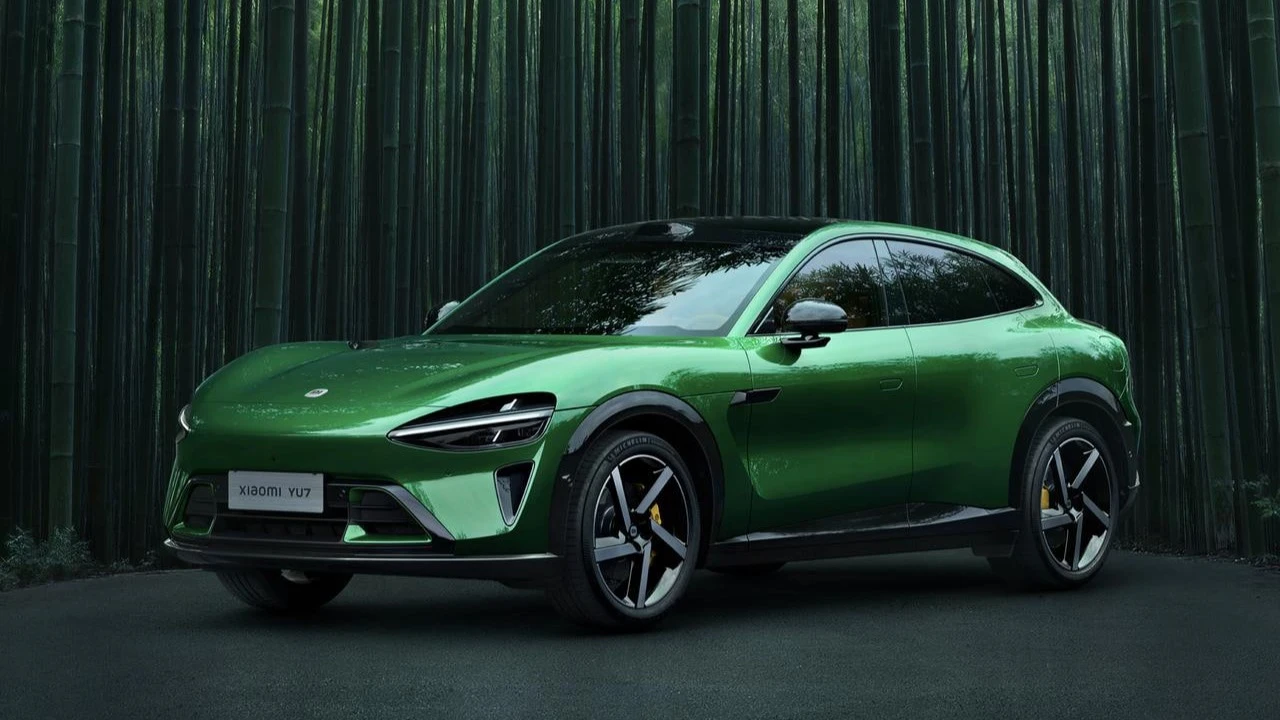Xiaomi releases its first SUV. Should we wait for a stock that's already at an all-time high?
Xiaomi's new electric car was slightly cheaper than its main competitor, the Tesla Model Y

Chinese electronics maker Xiaomi announced the start of sales of its first electric SUV (sport utility vehicle). The company's shares are already close to a record high, and it has surpassed electric car maker BYD in terms of capitalization. The new YU7 - a direct competitor to the Tesla Model Y - could help Xiaomi achieve even more, accounts Bloomberg.
Details
The YU7 is electronics maker Xiaomi's first SUV and a key element of the company's strategy in the electric vehicle segment, writes Bloomberg. The release of the SUV signals a profound change in Xiaomi's business model. The company is offering consumers a way to combine a smartphone, home appliances and a car into a single digital ecosystem - exactly the kind of synergy that no other manufacturer is lacking, the agency explains. This could cement Xiaomi's status as the leader of the Chinese technology sector, the value of which is estimated at trillions of dollars.
The YU7 will cost 253,500 yuan (about $35,000) as standard, Xiaomi announced Xiaomi at a June 26 presentation. By comparison, the Tesla Model Y, which became the best-selling SUV in China in May, starts at 263,500 yuan, while an electric version of BYD's Tang L SUV (with slightly smaller dimensions) costs between 239,800 and 289,800 yuan.
In total, Xiaomi expects to deliver 350,000 cars in 2025 - more than double the number it delivered a year earlier. Xiaomi plans to reach profitability in the auto segment in the second half of next year, Bloomberg writes.
Will stocks go up
Shares of electronics manufacturer Xiaomi, founded by billionaire Lei Jun, have jumped 64% since the beginning of the year and are trading near an all-time high in Hong Kong. Xiaomi's market capitalization reached $187 billion, surpassing the value of China's electric car market leader BYD. This was made possible by the rapid growth of the brand's presence in the world's largest car market, Bloomberg notes.
The rally of Xiaomi securities looks impressive against the background of the general revival of Chinese technology, which accelerated after the breakthrough of AI startup DeepSeek, emphasizes the agency. Xiaomi is now one of China's most expensive tech companies: the stock trades at a nearly 30 P/E ratio (the ratio of the current share price to its projected earnings over the next 12 months), which is nearly double Tencent's valuation and even outperforms Apple, which a year ago rejected the idea of releasing its own electric car.
Xiaomi's first electric car, the SU7 sedan, came out last March. Most analysts surveyed by Bloomberg expect the second electric car, the YU7 - sportier and more premium - to help attract a new audience and push quotes upward.
Part of Xiaomi's strategy in copying Tesla's tactic: release a limited number of models but sell them massively, explains Jefferies analyst Edison Lee. "Their first car was a hit. But if they can't replicate that success, they won't get to the scale they hoped for," the said analyst told Bloomberg.
"We expect the YU7 to significantly reduce Tesla Model Y market share in China," quotes Barron's cited a note from Citi analyst Jeff Chan. He estimates that once production reaches full capacity, annual sales of the YU7 will be between 300,000 and 360,000 vehicles, "given its outstanding technological performance and value for money." Tesla does not disclose model-specific sales figures in China. Ilon Musk's company sold a total of 660,000 electric vehicles there in 2024 - about a third of its global sales.
"This electric car [YU7] not only gives Xiaomi an entry into the fast-growing electric car market in China, but also unlocks a crucial synergy," Jun Liu, portfolio manager at Polen Capital, explained to Bloomberg. - There is no other company in the world today that can simultaneously combine a smartphone, home appliances and a car - and Xiaomi has all three elements."
Xiaomi's strengths are in manufacturing and marketing, according to Daisy Lee, an asset manager at EFG Asset Management in Hong Kong. The key factors now will be whether Xiaomi can "build its smart ecosystem, as well as continue to pursue the premium segment and increase market share in different product categories," she explained to the agency.
Context
Xiaomi postponed the launch of the YU7 after one of its flagship models fell into an accident in March, a year after its release, killing three people. That forced Xiaomi to cancel the SUV's premiere at the Shanghai Auto Show in April and led to stricter regulatory requirements for autopilot.
The company's future now depends largely on how fast the YU7 sale goes and at what level the price is set, according to Bloomberg.
Following the release of the SU7, Xiaomi's revenue increased by 32% in the second quarter of 2024 compared to the same period in 2023. The electronics maker started shipping SU7s in April and shipped 27k units during the quarter. At the same time, revenue from their sales reached 6.2 billion yuan ($870 million). This year, analysts will compare YU7 sales to the success of the SU7.
This article was AI-translated and verified by a human editor
